Filter by
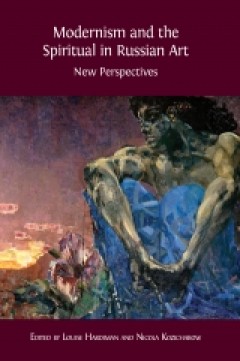
Modernism and the spiritual in russian art: new perspectives
Introduction: Modernism and the Spiritual in Russian Art Louise Hardiman and Nicola Kozicharow In an extended introductory essay, the editors briefly examine the significant role played by spiritual themes in the history of modernism and provide a chronological overview of the history of spiritual and religious themes in the development of Russian and early Soviet art. The main themes of the …
- Edition
- -
- ISBN/ISSN
- 9781783743407
- Collation
- 299 p.
- Series Title
- -
- Call Number
- 709.4709034 NIC m
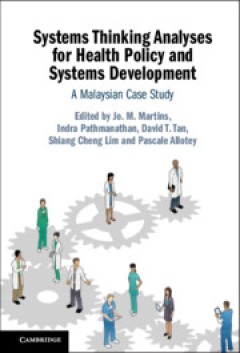
Systems thinking analyses for health policy and systems development : a Malay…
Health systems are fluid and their components are interdependent in complex ways. Policymakers, academics and students continually endeavour to understand how to manage health systems to improve the health of populations. However, previous scholarship has often failed to engage with the intersections and interactions of health with a multitude of other systems and determinants. This book ambiti…
- Edition
- -
- ISBN/ISSN
- 9781108954846
- Collation
- xlvii, 510 p. : ill.
- Series Title
- -
- Call Number
- 362.109595 MAR s

The Neo-Aramaic Oral Heritage of the Jews of Zakho
In 1951, the secluded Neo-Aramaic-speaking Jewish community of Zakho migrated collectively to Israel. It carried with it its unique language, culture and customs, many of which bore resemblance to those found in classical rabbinic literature. Like others in Kurdistan, for example, the Jews of Zakho retained a vibrant tradition of creating and performing songs based on embellishing biblical stor…
- Edition
- -
- ISBN/ISSN
- 9781800643048
- Collation
- xiii, 349 p. ; 15.6 cm.
- Series Title
- -
- Call Number
- 290 ALO t
Entertaining the idea : shakespeare, performance, and philosophy
To entertain an idea is to take it in, pay attention to it, give it breathing room, dwell with it for a time. The practice of entertaining ideas suggests rumination and meditation, inviting us to think of philosophy as a form of hospitality and a kind of mental theatre. In this collection, organized around key words shared by philosophy and performance, the editors suggest that Shakespeare’s …
- Edition
- -
- ISBN/ISSN
- 9781487536237
- Collation
- ix, 237 p.
- Series Title
- -
- Call Number
- 822.33 GAL e
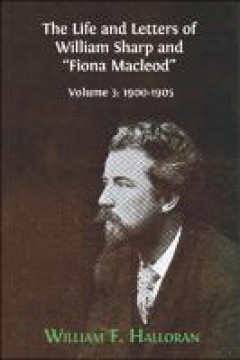
The life and letters of William Sharp and "Fiona Macleod." : Volume III 1900-…
William Sharp (1855-1905) conducted one of the most audacious literary deceptions of his or any time. Sharp was a Scottish poet, novelist, biographer and editor who in 1893 began to write critically and commercially successful books under the name Fiona Macleod. This was far more than just a pseudonym: he corresponded as Macleod, enlisting his sister to provide the handwriting and address, and …
- Edition
- -
- ISBN/ISSN
- 9781800640078
- Collation
- x, 471 p. : ill. ; 15.6 cm.
- Series Title
- -
- Call Number
- 820.8 WIL t
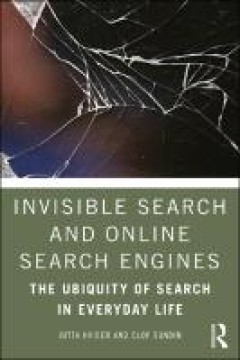
Invisible search and online search engines
Invisible Search and Online Search Engines considers the use of search engines in contemporary everyday life and the challenges this poses for media and information literacy. Looking for mediated information is mostly done online and arbitrated by the various tools and devices that people carry with them on a daily basis. Because of this, search engines have a significant impact on the structur…
- Edition
- -
- ISBN/ISSN
- 9780429448546
- Collation
- viii, 151 p. : ind. ; 24 cm
- Series Title
- -
- Call Number
- 025.0425 HAI i
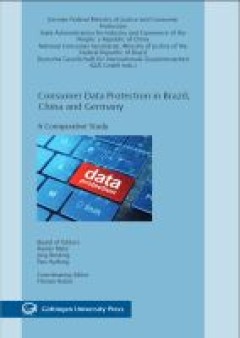
Consumer data protection in Brazil, China and Germany
The rapid development of new information and communication technologies has changed people’s everyday life and consumption patterns significantly. The worldwide spread of those technologies provides many innovations for consumers, but it can also bear risks, such as the indiscriminate collection, storage and cross-border flow of personal data, illegal spying on Internet activities, disseminat…
- Edition
- -
- ISBN/ISSN
- 9783863952365
- Collation
- 222 p. ; 24 cm
- Series Title
- -
- Call Number
- 343.071 CON c
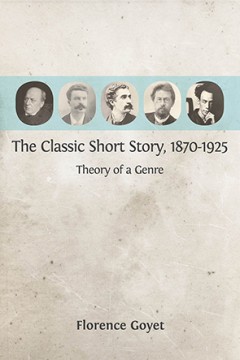
The classic short story, 1870-1925: theory of a genre
The ability to construct a nuanced narrative or complex character in the constrained form of the short story has sometimes been seen as the ultimate test of an author's creativity. Yet during the time when the short story was at its most popular—the late nineteenth and early twentieth centuries—even the greatest writers followed strict generic conventions that were far from subtle. This ex…
- Edition
- -
- ISBN/ISSN
- 9781909254770
- Collation
- 222 p. ; ill
- Series Title
- -
- Call Number
- 801.95 GOY t
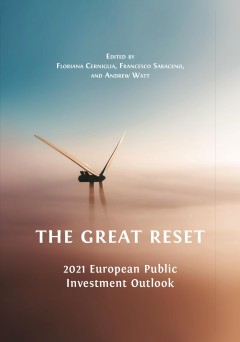
The Great Reset: 2021 European Public Investment Outlook
This timely and insightful collection of essays written by economists from a range of academic and policy institutes explores the subject of public investment through two avenues. The first examines public investment trends and needs in Europe, addressing the initiatives taken by European governments to tackle the COVID-19 recession and to rebuild their economies. The second identifies key doma…
- Edition
- -
- ISBN/ISSN
- 9781800643529
- Collation
- xxvii, 222 p. : ill. ; 17.8 cm.
- Series Title
- -
- Call Number
- 332.64 CER t
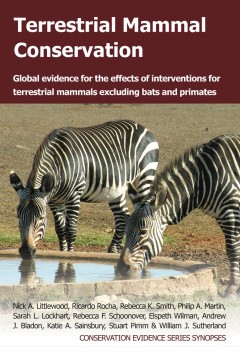
Terrestrial mammal conservation : global evidence for the effects of interven…
Terrestrial Mammal Conservation provides a thorough summary of the available scientific evidence of what is known, or not known, about the effectiveness of all of the conservation actions for wild terrestrial mammals across the world (excluding bats and primates, which are covered in separate synopses). Actions are organized into categories based on the International Union for Conservation of …
- Edition
- -
- ISBN/ISSN
- 9781800640856
- Collation
- xxiv, 1096p.
- Series Title
- -
- Call Number
- 333.95416 TER l
 Computer Science, Information & General Works
Computer Science, Information & General Works  Philosophy & Psychology
Philosophy & Psychology  Religion
Religion  Social Sciences
Social Sciences  Language
Language  Pure Science
Pure Science  Applied Sciences
Applied Sciences  Art & Recreation
Art & Recreation  Literature
Literature  History & Geography
History & Geography